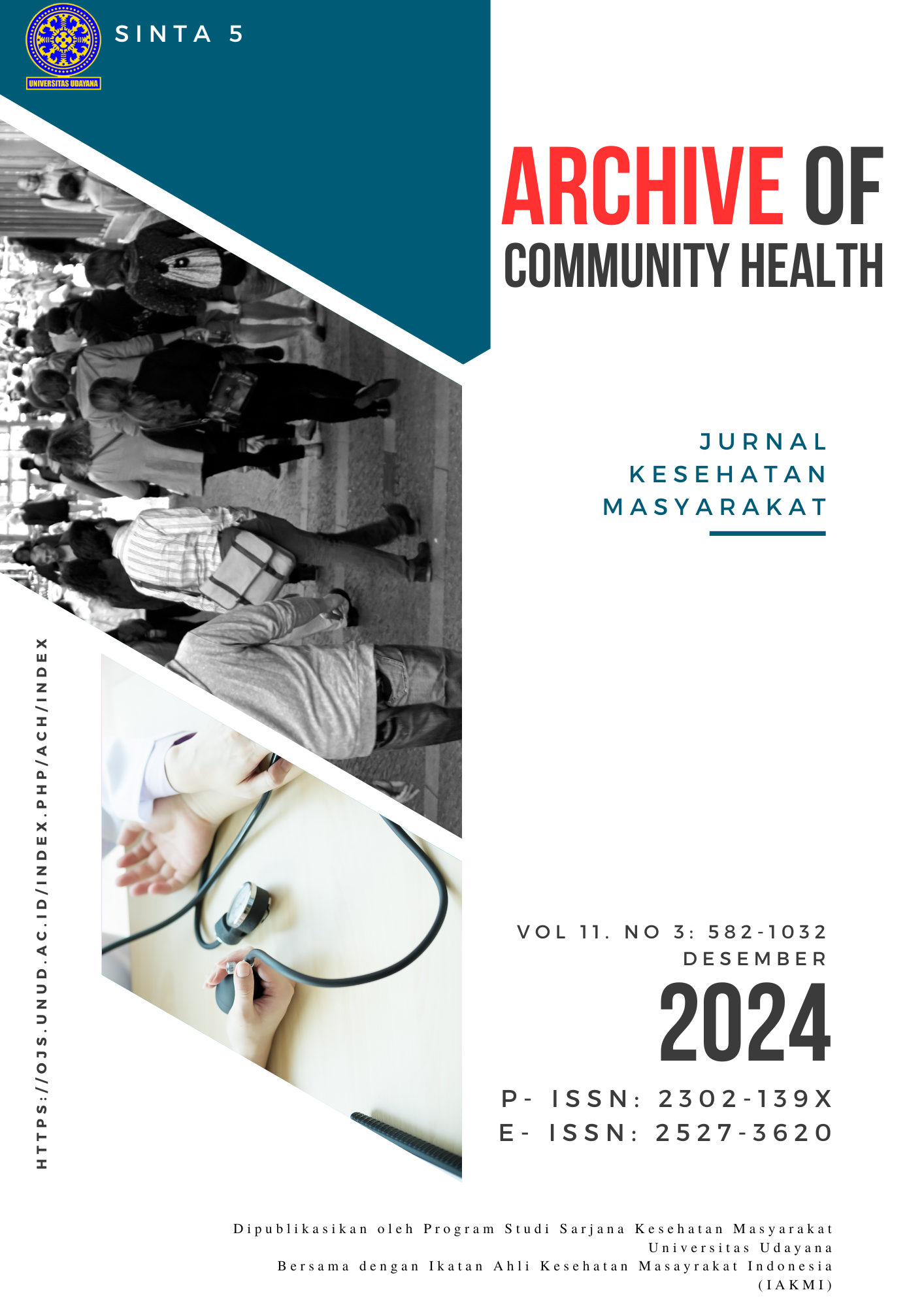AROMATERAPI LEMON MENGURANGI EMESIS GRAVIDARUM PADA IBU HAMIL
Abstract
ABSTRAK
Selama proses kehamilan terjadi perubahan fisik dan psikologis pada tubuh ibu salah satunya adalah mual muntah atau emesis gravidarum. Asuhan pada ibu hamil dengan emesis gravidarum dapat berupa terapi farmakologi dan nonfakmakologi. Salah satu terapi nonfarmakologi adalah aromaterapi lemon. Penelitian ini bertujuan untuk mengetahui perbedaan intensitas emesis gravidarum pada ibu hamil sebelum dan setelah pemberian aroma terapi lemon. Penelitian ini adalah penelitian deskriptif pre-eksperimental dengan rancangan one group pre-test post-test. Penelitian dilakukan di Puskesmas IV Denpasar Selatan pada Maret-April 2023. Sampel penelitian adalah ibu hamil yang dipilih menggunakan purposive sampling sejumlah 21 orang. Pengumpulan data menggunakan kuesioner Pregnancy Unique Quantification of Emesis and Nausea (PUQE-24) dengan teknik analisis data menggunakan uji Wilcoxon karena data berdistribusi tidak normal. Hasil: Rata-rata usia ibu hamil dalam penelitian ini 28 tahun dengan rata-rata usia kehamilan 19 minggu dan mayoritas primigravida (47,6%). Hasil pengukuran menunjukkan intensitas emesis gravidarum setelah pemberian aromaterapi lemon menurun dari intensitas ringan sampai sedang menjadi tidak muntah sampai intensitas ringan. Hasil uji Wilcoxon menunjukkan nilai p 0,000 yang artinya terdapat perbedaan intensitas emesis gravidarum sebelum dan sesudah pemberian aroma terapi lemon. Kesimpulan: Aromaterapi lemon efektif sebagai terapi nonfarmaklogis untuk menurunkan intensitas mual muntah pada ibu hamil.
Keywords: Emesis Gravidarum, Aromaterapi, Lemon
ABSTRACT
During the pregnancy process, various physical and psychological changes occur in the mother's body, one of which is emesis gravidarum. As for care for pregnant women with emesis gravidarum, pharmacological and non-pharmacological therapy can be carried out. One of the non-pharmacological or complementary therapies is by giving lemon aromatherapy. This study aims to determine differences in the intensity of emesis gravidarum in pregnant before and after giving aromatherapy lemon. This research is a descriptive pre-experimental study with a one group pre-test post-test design. The research was conducted in the working area of the South Denpasar Health Center IV in March-April 2023. The research sample was pregnant women who were selected using purposive sampling of 21 people. Data collection was carried out using the Pregnancy Unique Quantification of Emesis and Nausea questionnaire (PUQE-24) with data analysis techniques using the Wilcoxon test because the data were not normally distributed. Results: The average age of pregnant women in this study was 28 years with an average gestational age of 19 weeks. The majority of mothers are primigravidas (47.6%). The measurement results showed that the intensity of emesis gravidarum after administration of lemon aromatherapy is decreased. The results of the Wilcoxon test showed a p value of 0.000, which means that there was a difference in the intensity of emesis gravidarum before and after giving lemon aromatherapy. Conclusion: Lemon aromatherapy is effective as a non-pharmacological therapy to reduce the intensity of nausea and vomiting in pregnant women in the first and second trimesters.
Keywords: Emesis Gravidarum, Aromatherapy, Lemon.














